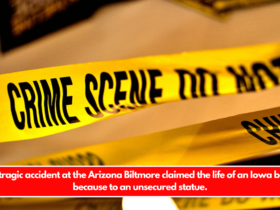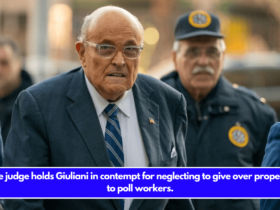In his 1974 presidential campaign announcement speech, Georgia Governor Jimmy Carter stated that there were some things he would not do if elected: “I would not lie. I would not mislead the American people… nor would I betray your trust.”
If anything characterized President Carter, it was his fundamental decency and morality. Carter was elected in 1976 in the aftermath of Watergate and Gerald Ford’s controversial pardon of Richard Nixon, and he believed he had a responsibility to restore Americans’ trust in their government.
“We want to be proud again,” he told attendees at the Democratic National Convention. “We just want the truth again.”
A little-known Georgia governor rose to power in spectacular fashion. Many Americans asked, “Jimmy who?” when Carter first announced his candidacy for president.
Stuart Eizenstat, who first worked with Carter when he ran for governor in 1970 and later became his White House Chief of Domestic Policy, said Carter believed he could win because “he had a great sense of his own capabilities.”
Carter, the son of a successful peanut farmer, grew up without electricity or running water near Plains, Georgia. Carter was accepted to the Naval Academy, and while at Annapolis, he began dating Rosalyn Smith. They married in 1946, and she eventually became his most trusted advisor. Eizenstat elaborated: “They were not only married for over 70 years; they had a love affair.”
When Carter’s father died, he had to leave the Navy to run the family peanut business. The Carters returned to Plains and began raising three sons and one daughter.
Chip Carter, the second-born son, recalled how, against all odds, his father secured the Democratic nomination and won the election with Minnesota Senator Walter Mondale as his running mate.
Chip said he helped organize one of the most famous images of the Carter inauguration: “I went to dad’s Secret Service agents and said, ‘We might want to do this walk.'”
That walk down Pennsylvania Avenue seemed to symbolize Carter’s open and energetic approach to the White House.
However, Carter’s presidency would be tumultuous, thanks in part to his complex personality. Jonathan Alter, a journalist and author, stated, “He was humble, affable, open, but he could also be difficult, prickly, and stubborn.”
Alter, who spent many hours with Carter for his biography, wrote, “There was much more accomplishment in the Carter presidency than I had thought.”
Carter, known for wearing sweaters to demonstrate how he turned down the White House thermostats, pushed for comprehensive energy legislation.
Carter established the Department of Education, deregulated airlines, doubled the amount of land in our national parks, and, in one of his most significant and controversial initiatives, negotiated the return of the Panama Canal Zone to Panamanians.
“This opens a new chapter in our relations with all nations of this hemisphere,” the president stated.
But perhaps his most significant foreign policy achievement was pushing through the Camp David Accords, a historic 1978 agreement between Israel and Egypt. Alter described it as “the most successful peace treaty since World War II.”
However, in 1979, other Middle Eastern issues led to gasoline shortages, resulting in high prices and long lines at gas stations. Carter’s popularity plunged. In July, he decided to address the nation, warning of a crisis of confidence: “Too many of us now tend to worship self-indulgence and consumption,” he said.
Many politicians and pundits were surprised by how well the speech went over. According to Eizenstat, “The speech touched a raw nerve, contrary to my own belief. Then he stepped on his own headlines. He requested the resignation of his entire cabinet. “It appeared that the entire government was in chaos.”
Then, in November 1979, 52 Americans were kidnapped at the US Embassy in Iran, followed by a failed attempt to free them – all in preparation for the 1980 presidential election.
As Alter described it, “The roof caved in on Jimmy Carter.”
So Carter would lose to Ronald Reagan’s upbeat message. However, it marked the beginning of a new chapter – an ex-presidency that Carter claimed was superior to his own.
“That may be true,” he told “CBS Sunday Morning” in 2006. “Certainly my reputation has been better in the post-presidential years than maybe in the White House.”
No wonder. He and Rosalynn (who died in 2023) established the Carter Center to promote democracy and improve healthcare worldwide. In 2002, Jimmy Carter received the Nobel Peace Prize. In his Nobel laureate speech, he stated, “We will not learn how to live together in peace by killing each other’s children.”
Carter wrote more than 30 books over the years, and he and Rosalynn continued to build Habitat for Humanity homes while also teaching Sunday School in Plains.
Jimmy Carter, who recovered from melanoma that had spread to his brain and liver in 2015, sometimes appeared to be Superman. At the age of 100, James Earl Carter Jr. lived the longest of any American president.
When asked how he thought his father should be remembered, Chip Carter responded, “A beautiful human being who gave everything he could to his children and his country, and who left it a better place than he found it.” And you know, that’s about the best I can do.”
In 2018, President Jimmy Carter told “Sunday Morning” anchor Jane Pauley that he was a “champion of peace and human rights.” I’ve tried to carve out a life for myself that is productive, useful, and certainly enjoyable. I’ve been extremely lucky.”















Leave a Reply